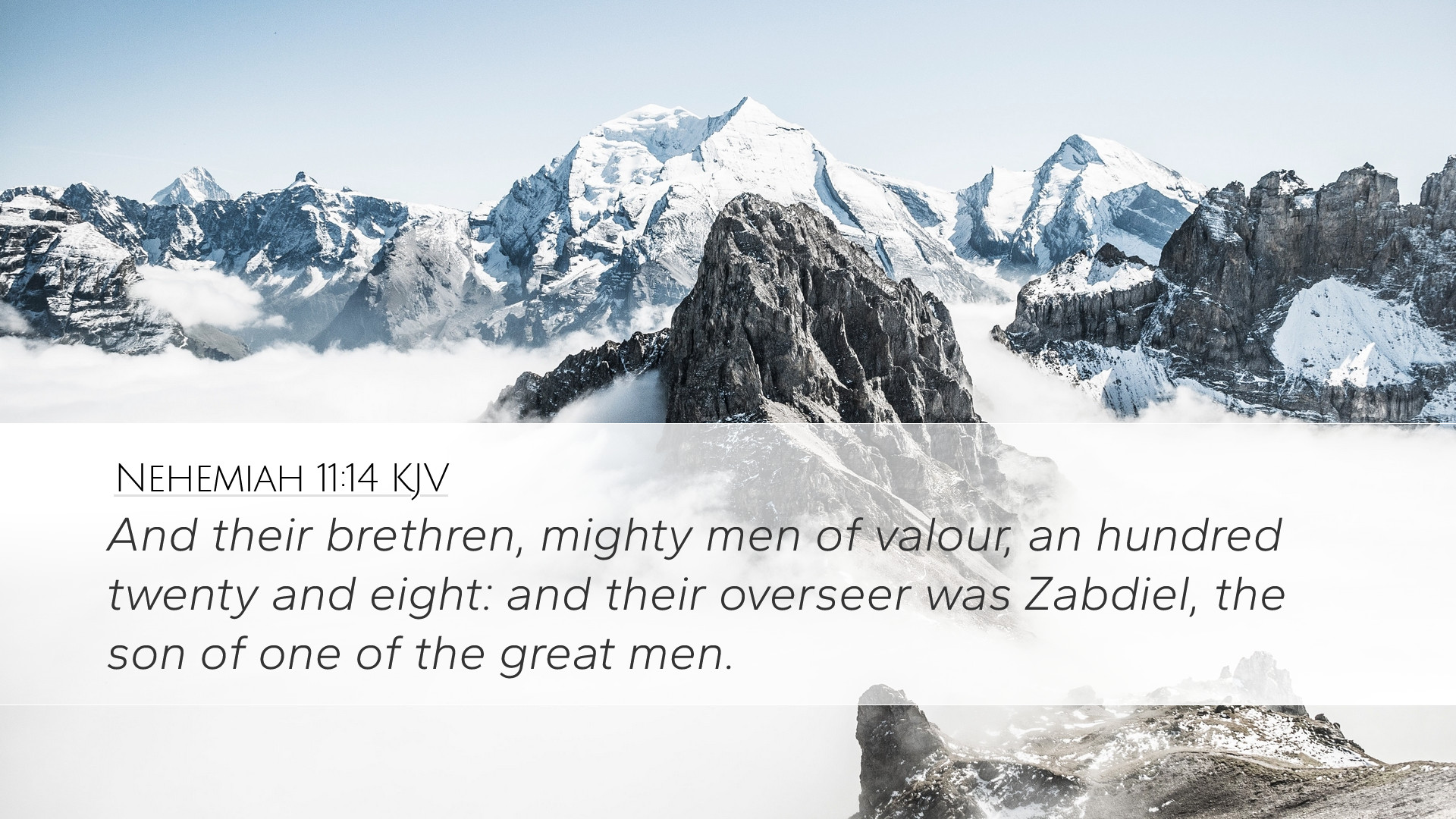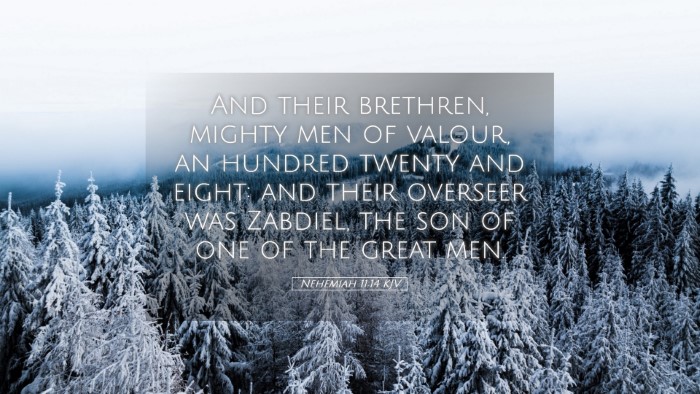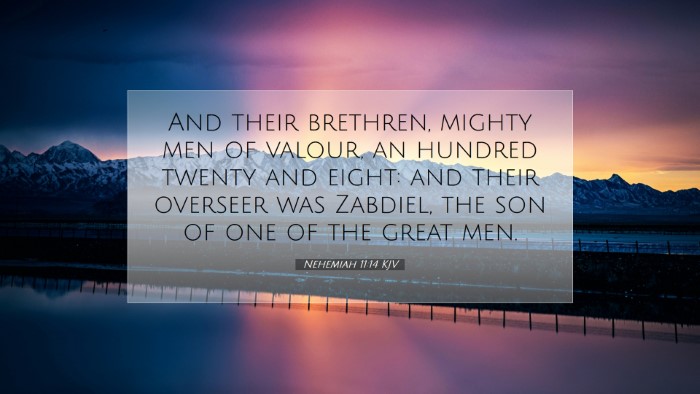Commentary on Nehemiah 11:14
Verse: Nehemiah 11:14 - "And their brethren, mighty men of valour, were two hundred and eighty, and their overseer was Zabdiel the son of one of the great men."
Introduction
The verse under consideration is part of a larger narrative concerning the repopulation and organization of Jerusalem after the Babylonian exile. Nehemiah, a governor and leader, orchestrates the resettlement of the people, emphasizing the importance of community strength and leadership.
Contextual Background
The book of Nehemiah presents a remarkable account of the restoration efforts in Jerusalem. Following the return from exile, Nehemiah's leadership emerges as pivotal in rebuilding the walls and reinstating the city's structure.
- Historical Context: The return from exile was a significant event in Jewish history, marking a transition from captivity to restoration.
- Spiritual Significance: The act of repopulating Jerusalem symbolizes renewal and the re-establishment of God's covenant community.
Analysis of Nehemiah 11:14
This verse highlights two central themes: community strength and leadership.
Mighty Men of Valor
In this passage, the phrase "mighty men of valour" is significant. These individuals were not only physically formidable but also stood for integrity and moral strength.
- Definition of Valor: Valor connotes courage and bravery, especially in the face of adversity.
- Role in Community: Such men were vital for maintaining security and stability in a tumultuous period.
- Implications for Leadership: Their presence indicates that effective leadership is characterized by both spiritual and physical courage.
Number Mentioned
The scripture notes that there were two hundred and eighty men. The specific number suggests careful record-keeping and the importance of each individual's role. This detail implies several things:
- Divine Order: God's administration often involves organization and planning; the remnant is preserved in numbers that reflect divine providence.
- Community Contribution: Each person’s contribution, no matter how small, is crucial for the community's overall health and well-being.
Leadership of Zabdiel
The overseer, Zabdiel, introduces a familial aspect to leadership. Being "the son of one of the great men" reflects a legacy of responsibility:
- Mentorship and Legacy: The reference to his father suggests the importance of mentorship and the passing down of leadership qualities.
- Expectations of Leadership: Zabdiel is tasked with overseeing these valiant men, highlighting the responsibilities leaders carry.
Insights from Commentaries
Matthew Henry's Commentary
Matthew Henry emphasizes the importance of selecting strong leaders who are valiant and capable. He suggests that such men bring stability to the community and are instrumental in the rebuilding process.
Albert Barnes' Notes on the Bible
Barnes points out the significance of having capable and valorous leaders in ancient Israel. He argues that the burdens of leadership require the utmost integrity, especially in restoration efforts.
Adam Clarke's Commentary
Adam Clarke adds a nuanced view, noting that the overseer’s familial ties may indicate a continuation of a heritage of leadership within Israel. His insights highlight the role of traditions and family in shaping community leaders.
Theological Reflection
This passage can be reflective for modern readers in several ways:
- Valour in Faith: Believers today are called to exhibit bravery in their faith, akin to the "mighty men" of Nehemiah’s time.
- Importance of Community: Just as these men were valiant for their city, contemporary Christians must engage actively in their communities.
- Leadership Qualities: Recognizing that leadership in the church and community requires moral qualities and the courage to stand firm in faith.
Conclusion
Nehemiah 11:14 serves as a critical reminder of the intertwining of strength, leadership, and community. The characteristics of the leaders in this passage—valor, oversight, and familial legacy—continue to resonate in the contemporary ecclesiastical landscape. A focus on these qualities can encourage today's leaders and congregants to reflect on their roles within the body of Christ.


